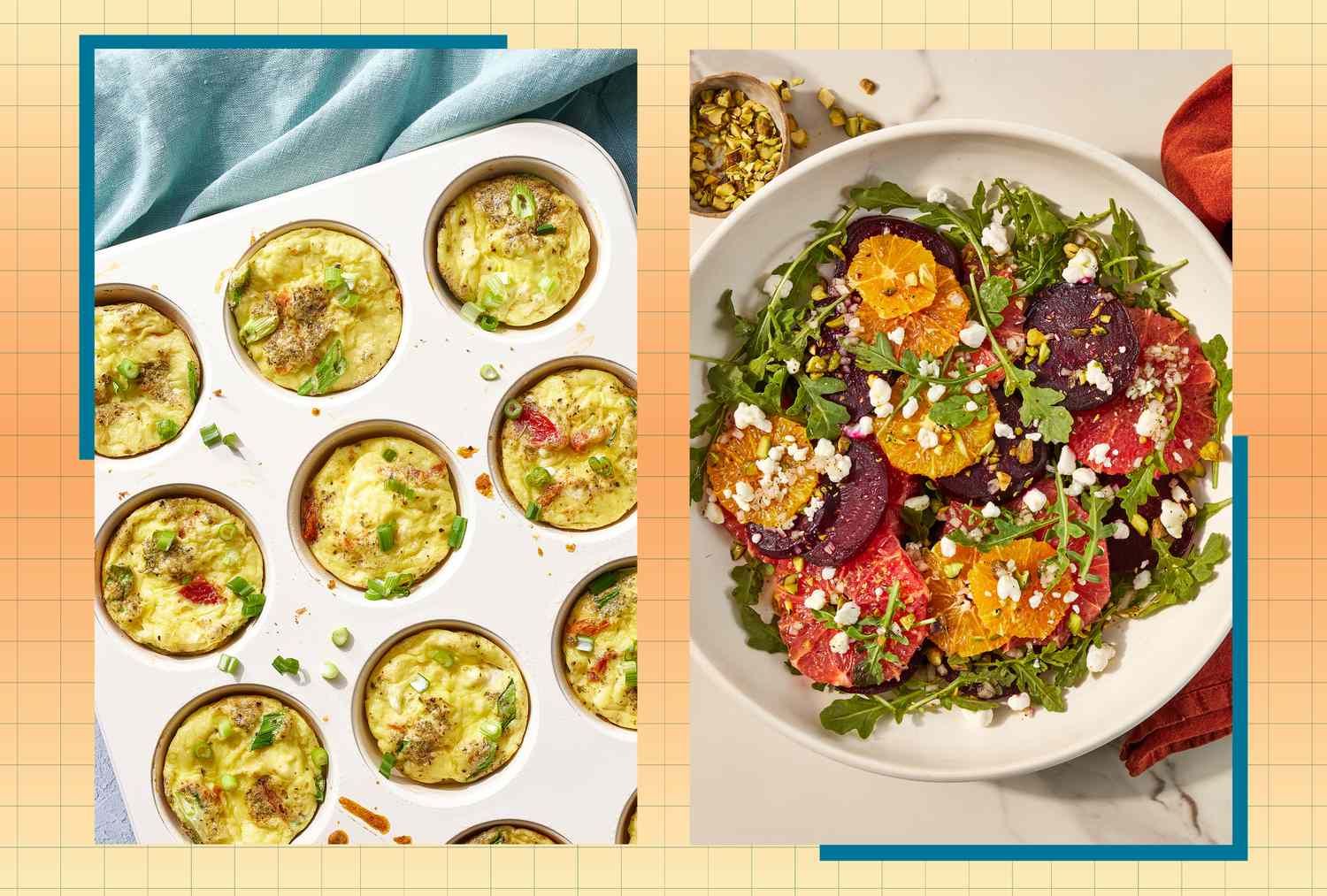Wellness Exchange: Health Discussions
Transform Your Health with a Mediterranean Meal Plan
Welcome to Quick News. This is Ted. The news was published on Saturday, December 7th. Today, we're diving into a fascinating topic, a seven-day high-protein, anti-inflammatory, Mediterranean diet meal plan designed to tackle chronic inflammation issues. With us are Eric and Kate to share their insights. Let's jump right in. Sure thing, Ted. Anti-inflammatory in simple terms means eating foods that help calm down the body's inflammation. You know, things like leafy greens, fatty fish, nuts, foods that can fight against the harm that chronic inflammation might cause. It's like adding cool water to a simmering pot to keep it from boiling over. Okay, okay, but let's pause for a second. Is it really that magical? Look, inflammation itself isn't always this health villain Eric makes it out to be. Our bodies need some inflammation. It's part of its defense team. Cutting out inflammation completely seems like, well, I hear you, Kate, but we're talking about chronic inflammation here, a whole different beast from the occasional flare up. It's been linked to stuff like heart disease and other nasties. That's why a meal plan averaging 111 grams of protein and 36 grams of fiber daily. Numbers sure sound fancy, Eric, but let's be real here. There's a craze over protein these days. Sure, fiber is good, but like, we're not suddenly going to see everyone start hitting their daily fiber goals just because most of them are way off target. Good observation, Kate. Now, let's talk calories. This meal plan adjusts from 1500 to 2000 calories a day. What are your thoughts on offering such flexibility? Flexibility is the name of the game, Ted, considering only 5% of Americans actually meet their fiber needs. Having calorie adaptations means more folks can tailor it to their lifestyles. It's about meeting people where they're at. Or, and hear me out, it just makes it too easy to dodge any commitment. You know, like they just say, oh sure, I'll try one of these meals. But does it really stick? Is anyone truly seeing a change by simply taking calorie counts? Now, what about the emphasis on ditching refined grains and added sugars? Oh, that's crucial, Ted, because those can ramp up inflammation by focusing on whole foods like veggies and nuts. We get more natural benefits for things like heart health and even a stronger immune system. All right. Let's get real. People love their comfort foods. It's all nice saying ditch refined grains, but I doubt everyone's going to just toss their favorite. Well, we've covered a lot about this seven day plan. It's high protein focus and flexibility. Let's rewind a bit to look at historical context. Eric, any past diet trends this reminds you of? For sure, Ted, this meal plan takes me back to the sixties when the Mediterranean diet exploded onto the scene. Back then it caught flack, but gradually gained backing due to its links to lower heart disease, especially in places like Crete. But wait a minute, Eric, they weren't talking up protein back then like they are now. This seems like it's riding the protein wave more than anything else. Is this really any different? Look, trends come and go, but the core principle of elevating fruits, veggies and healthy fats has remained rock solid over the years. It's simple stuff that's consistent. True, but let's not pretend it's the miraculous answer to everyone's problems. The sixties had a different lifestyle altogether, so it's more than just how have dietary guidelines shifted from those early Mediterranean principles to what we see today. Initially, it was all about promoting plant-based eating broadly. Now, it's zeroing in on specific issues like inflammation, tailoring things more to tackle chronic conditions head on. Makes sense why folks are often skeptical of health plans, right? Every decade seems to have its own narrative. It's all part of the marketing machine. And what's the application of these historic guidelines today? Today, it's about personalizing diets more than ever. This meal plan mirrors that shift by offering calorie customization, which seems to be the future trend in nutrition. But honestly, do people really change just because a guideline says so? Not likely media and current trends have more. All right, let's pivot to the future. What do you both predict for followers of this plan? Eric, what do you think? I see it becoming a go-to for heart health mavens. The demand for diets promising to tackle long-term health issues is only climbing. This could be the health wave of the future. Or it'll end up as another passing fad. People hop onto the next diet train as soon as it rolls in. Trust me, they'll drop this plan like my bad habits. How about the Mediterranean diet possibly being a future diet blueprint? It sets a sturdy foundation for sure, Ted. People trust it because of its proven benefits over the long haul. Others will definitely build on it. Horror folks will just cherry pick what they fancy from it, leaving the rest aside. It turns into a buffet type choice more than a balanced approach. Lastly, is there merit in this focus on protein? Totally. Proteins got massive benefits for muscles and feeling full. Don't see that going out of fashion anytime soon. Until they pivot back to carbs or whatever the next big thing is when the media spins a new diet tail. Outstanding insights. Looks like this conversation opens the door to more debates on health, diet evolution, and where food trends are headed. Thanks for joining us, Eric and Kate, and thanks to our listeners. Stay tuned for more at QuickNews.
